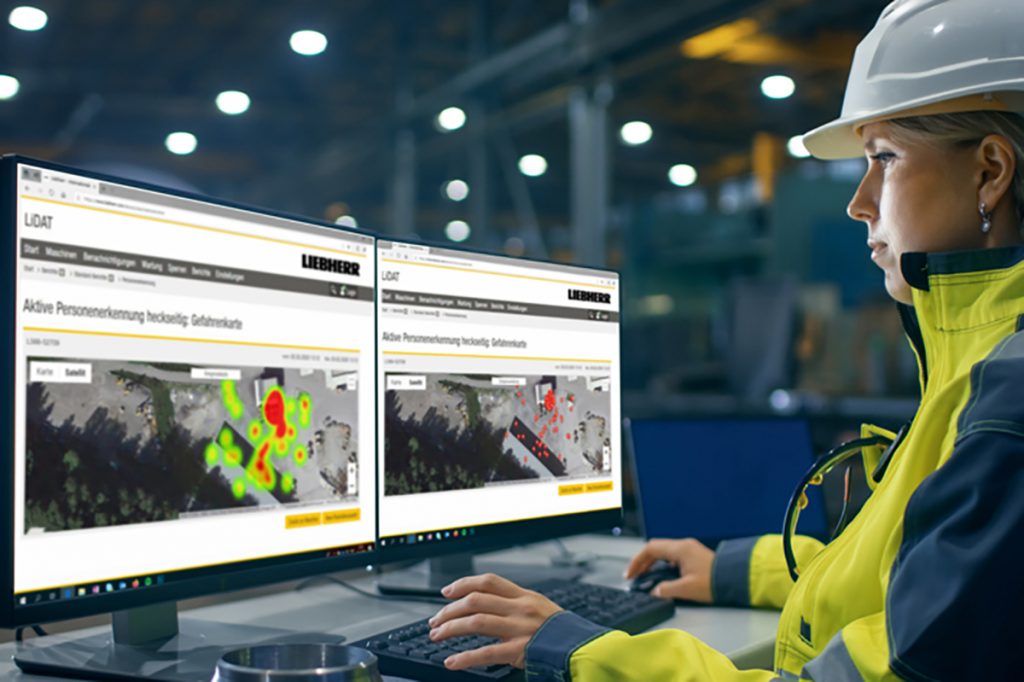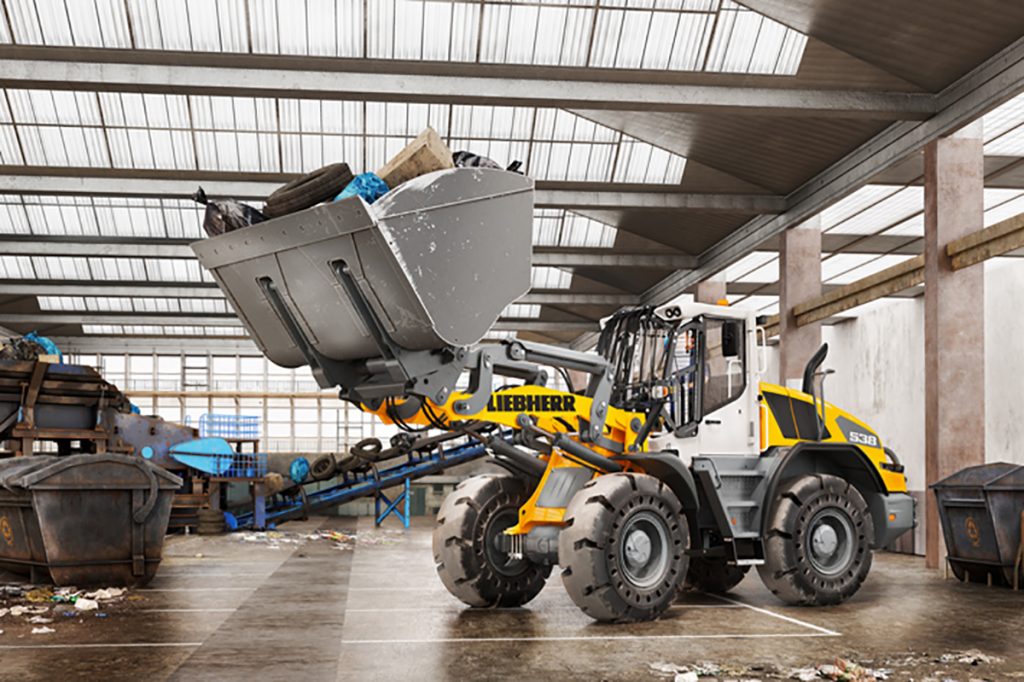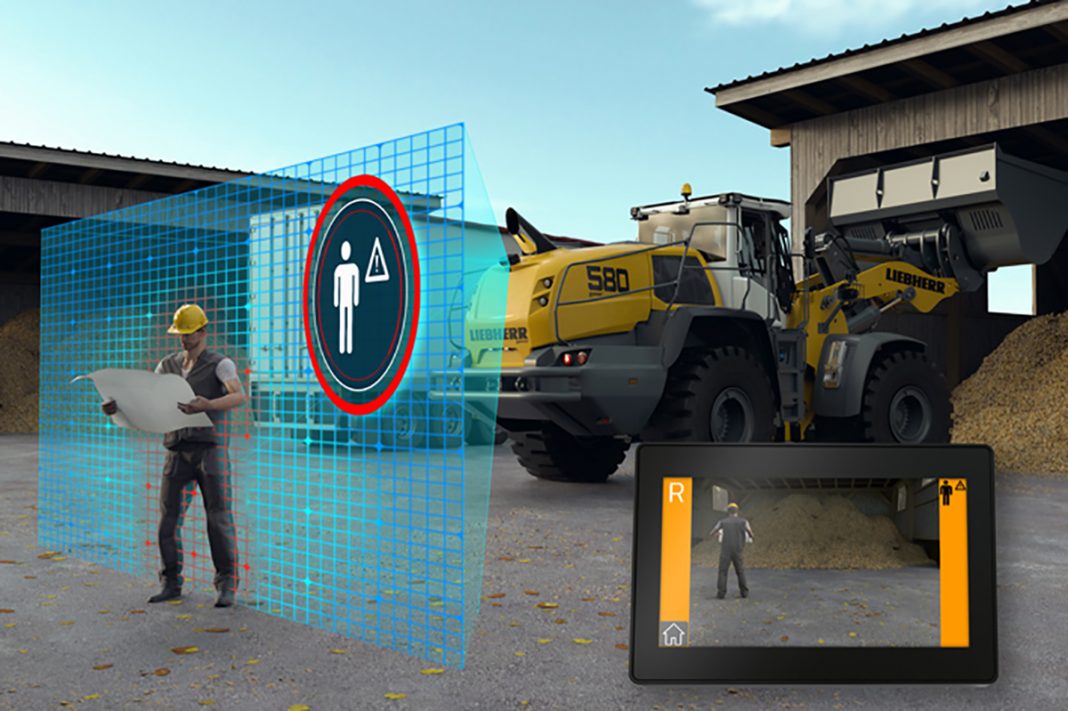![]()
Active personnel detection is an innovative assistance system for the Liebherr L 526 to L 586 XPower®range of wheel loaders. Liebherr has now added two extra functions – the brake assistant and incident map – to active personnel detection. The brake assistant automatically slows the speed of the wheel loader to a standstill the moment the active personnel detection issues a warning signal. The incident map displays potential risk zones on the site using GPS data in LiDAT – Liebherr’s in-house transfer and location system.
Statistically speaking, accidents with wheel loaders occur most frequently when the machine operator reverses after a loading process. This reverse travel is particularly risky if people are located in the wheel loader’s operating area. In these situations, there is a huge responsibility on the machine operator. Construction machine accidents can often result in severe injuries and significant damage. To ensure maximum safety, Liebherr is therefore continuing to develop its assistance systems. A current example of this is active personnel detection at the rear which now has an integrated braking assistance function and an incident map.
Brake assistant: automatic speed reduction reduces stopping distance
Active personnel detection visually alerts the machine operator via the display screen and sounds acoustic signals if there is danger in the wheel loader’s rear area. In order to provide a specific warning of imminent injury to people, the assistance system, using smart sensors, provides specific warning of people in the rear area of the wheel loader at a greater distance than for obstructions such as walls, columns or other vehicles. This means the assistance system avoids unnecessary signals, thereby reducing the burden on the machine operator and causing fewer distractions.
The moment the active personnel detection system identifies a source of danger, the brake assistant slows the wheel loader down to a standstill. The braking process is therefore initiated at an earlier stage and quicker than in the case of traditional braking since, with the brake assistant, there is no delay caused by human reaction time. This means there is an important reduction in the stopping distance which, in turn, reduces the frequency and severity of accidents.
In the case of the brake assistant, the hydrostatic components of the drive train automatically reduce the speed. This means the machine operator can continue to operate the wheel loader service brake in the normal way and can do this in addition to the brake assistant.

Incident map: risk management thanks to display of danger zones
Besides the brake assistant, a second new function for the active personnel detection at the rear is the incident map. Each time the assistance system detects a danger and a warning signal is issued, the system transmits a GPS signal to LiDAT, Liebherr’s in-house transfer and location system. On the basis of this signal, and for each operator of a wheel loader with active personnel detection, Liebherr provides a Google map in LiDAT showing these GPS points.
The result is an incident map displaying the risk zones and potential sources of danger on the site. The operator can use this to take measures to prevent accidents and therefore increase safety. For example, the operator might reroute footpaths, cordon off areas and alter dangerous work sequences. The head of operations can use the incident map to train employees and make them aware of risky situations.

Additional intelligent wheel loader assistance systems for increased safety
Liebherr offers several intelligent assistance systems for its mid-range and large wheel loader series. In addition to active personnel detection, these include adaptive working lighting, front space monitoring, the skyview 360° camera system, the tyre pressure monitoring system with sensor support and the new weighing device. Liebherr’s goal with the assistance systems is to increase safety and comfort and to support the machine operator. All systems have been developed by Liebherr and are therefore fully integrated in the machine control.
























